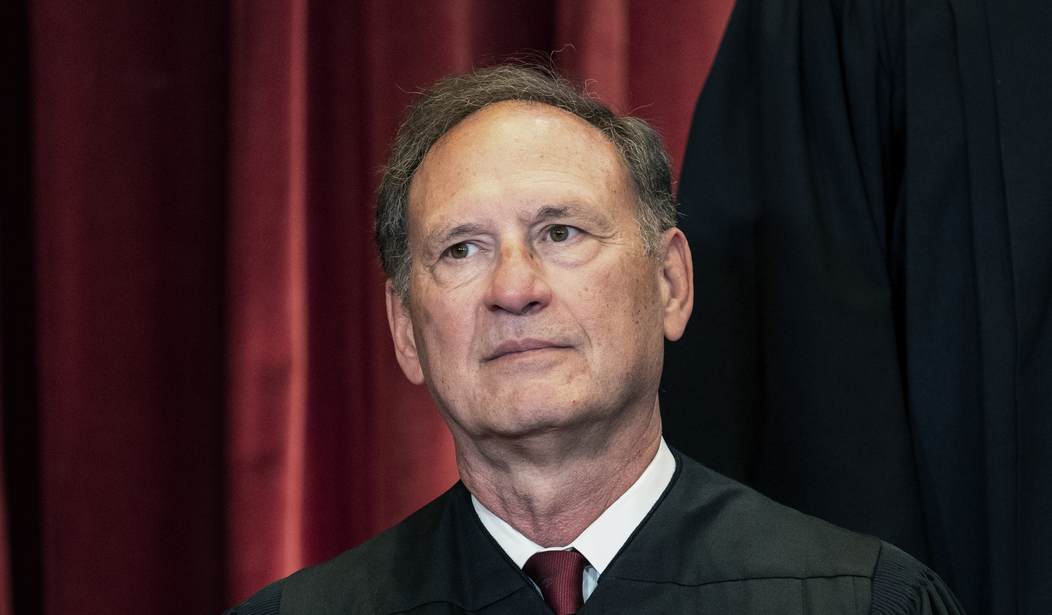Late last night ProPublica published a story titled “Justice Samuel Alito Took Luxury Fishing Vacation With GOP Billionaire Who Later Had Cases Before the Court.” The story is about a fishing trip to Alaska which Justice Alito took in 2008:
In early July 2008, Samuel Alito stood on a riverbank in a remote corner of Alaska. The Supreme Court justice was on vacation at a luxury fishing lodge that charged more than $1,000 a day, and after catching a king salmon nearly the size of his leg, Alito posed for a picture. To his left, a man stood beaming: Paul Singer, a hedge fund billionaire who has repeatedly asked the Supreme Court to rule in his favor in high-stakes business disputes…
The justice’s stay was provided free of charge by another major donor to the conservative legal movement: Robin Arkley II, the owner of a mortgage company then based in California. Arkley had recently acquired the fishing lodge, which catered to affluent tourists seeking a luxury experience in the Alaskan wilderness. A planning document prepared by lodge staff describes Alito as a guest of Arkley. Another guest on the trip told ProPublica the trip was a gift from Arkley, and two lodge employees said they were told that Alito wasn’t paying…
Alito did not disclose the flight or the stay at the fishing lodge in his annual financial disclosures. A federal law passed after Watergate requires federal officials including Supreme Court justices to publicly report most gifts. (The year before, Alito reported getting $500 of Italian food and wine from a friend, noting that his friend was unlikely to “appear before this Court.”)
The law has a “personal hospitality” exemption: If someone hosts a justice on their own property, free “food, lodging, or entertainment” don’t always have to be disclosed. But the law clearly requires disclosure for gifts of private jet flights, according to seven ethics law experts, and Alito appears to have violated it. The typical interpretation of the law required disclosure for his stay at the lodge too, experts said, since it was a commercial property rather than a vacation home. The judiciary’s regulations did not make that explicit until they were updated earlier this year.
While Arkley didn’t have any business before the Supreme Court, Singer’s hedge fund would wind up before the Court a number of times over the next few years because of a dispute with the government of Argentina. In 2014, the Court agreed to take one of those cases, six years after the fishing trip. Justice Alito did not recuse himself and the court eventually ruled 7-1 in favor of Singer. As a result Argentina eventually agreed to pay the money it owed his company which amounted to more than $2 billion dollars.
It’s worth noting that ProPublica‘s explanation of the case is a bit vague. The case that initially set up the payout to Singer’s hedge fund came from a US District Court in 2012:
…beginning in 1994, Argentina had gone to the U.S. to sell those bonds. It had made promises to win over investors who were wary because of that nation’s financial past — a history that one U.S. court would disparage as “a diplomacy of default.”
One promise was that any dispute would have to be settled under New York law. And another was a so-called “equal treatment” guarantee. That second promise goes by a Latin phrase, pari passu. Loosely translated, it means that everybody gets treated the same when it comes to investors’ rights. It is a standard part of almost all international borrowings by governments…
Ultimately, a federal judge in New York City, Thomas P. Griesa (in time, fully supported by a higher court, the U.S. Court of Appeals for the Second Circuit), ruled that if Argentina made any more payments to the swap participants, it had to pay what it owed to the holdouts — that is $1.33 billion. That, Judge Griesa said, is what pari passu means.
Argentina appealed that decision to the Supreme Court hoping to overturn it. The Court’s 2014 decision was 7-1 and was written by Justice Scalia. Justice Ginsburg was the dissent and Justice Sotomayor recused herself “because she had had something to do with the Argentina debt litigation when she was a judge on the Second Circuit.”
The ruling upheld the New York federal judge’s decision that Argentina owed its 1994 creditors money in keeping with promises it had made, but I wonder if readers of the ProPublica story understand that this was not a case where the Supreme Court swung the case in a favorable direction for Singer and others. The favorable decision had already been reached by the lower court (and apparently affirmed by an appeals court) before SCOTUS put a stamp of finality on it in 2014.
ProPublica asked Justice Alito to comment on the story prior to publication but he declined. Instead, the Wall Street Journal published his full response.
ProPublica has leveled two charges against me: first, that I should have recused in matters in which an entity connected with Paul Singer was a party and, second, that I was obligated to list certain items as gifts on my 2008 Financial Disclose Report. Neither charge is valid.
He goes on to argue that in the specific 2014 case he did not know that Singer was involved because his name never appeared in any court document about the case.
To ensure that I am not required to recuse, multiple members of my staff carefully check the names of the parties in each case and any other entities listed in the corporate disclosure statement required by our rules. See Supreme Court Rule 29.6. Mr. Singer was not listed as a party in any of the cases listed by ProPublica. Nor did his name appear in any of the corporate disclosure statements or the certiorari petitions or briefs in opposition to certiorari. In the one case in which review was granted, Republic of Argentina v. NML Capital, Ltd., No. 12-842, Mr. Singer’s name did not appear in either the certiorari petition, the brief in opposition, or the merits briefs. Because his name did not appear in these filings, I was unaware of his connection with any of the listed entities, and I had no good reason to be aware of that.
As for the claim that he should have reported the travel and lodging on his disclosure form, Alito said that at the time the general understanding was that travel and lodging need not be reported.
When I joined the Court and until the recent amendment of the filing instructions, justices commonly interpreted this discussion of “hospitality” to mean that accommodations and transportation for social events were not reportable gifts. The flight to Alaska was the only occasion when I have accepted transportation for a purely social event, and in doing so I followed what I understood to be standard practice.
For these reasons, I did not include on my Financial Disclosure Report for 2008 either the accommodations provided by the owner of the King Salmon Lodge, who, to my knowledge, has never been involved in any matter before the Court, or the seat on the flight to Alaska.
Finally, about the flight, Alito argued that he was asked to join the trip shortly before it happened and understood that the flight was happening with or without him. He took a seat which otherwise would have been empty and which “would not impose any extra cost on Mr. Singer.” The alternative would have been to fly commercial which he says would have created an imposition on the Court to provide security for his travel.








Join the conversation as a VIP Member